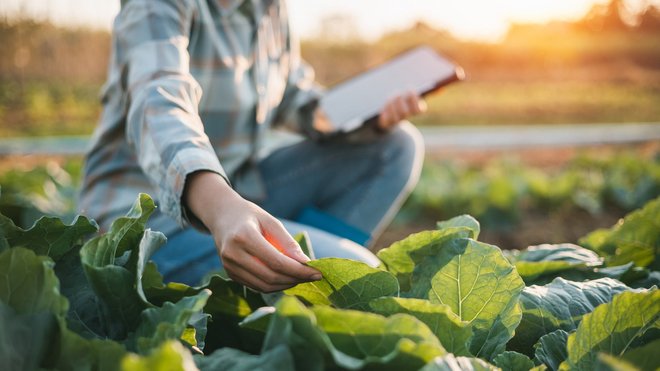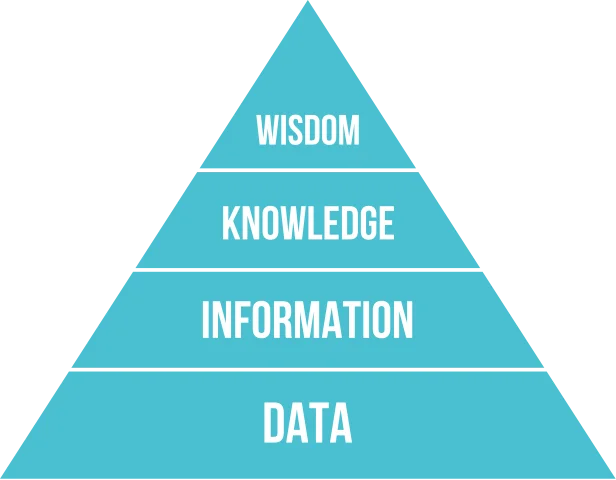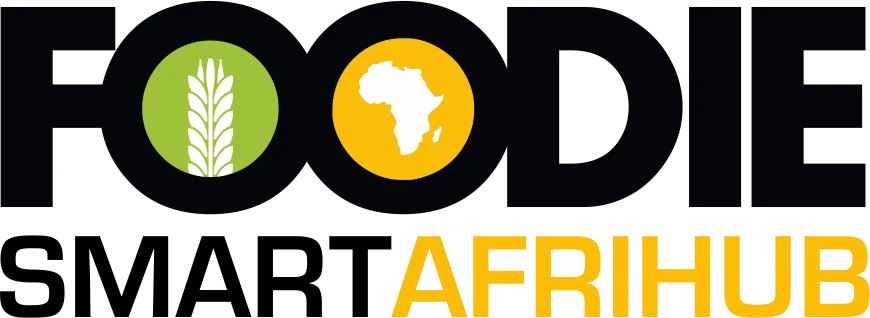Knowledge management in agriculture and its importance

Reading time
Content
Nowadays, it is clear that global agriculture is facing many challenges, whether it is the need to increase food production while reducing inputs, or the need to better understand complex processes and changing market demands. To meet these challenges effectively, it is crucial to understand the relationship between data, information and knowledge and to use them to manage farms and agriculture as a whole.
The figure presents us with the DIKW (Data-Information-Knowledge-Wisdom) hierarchy, which provides a framework for understanding these key concepts.

DIKW is a model used to understand the relationships between data, information, knowledge and wisdom. In the context of agriculture, this hierarchy helps to decipher how raw data is transformed into valuable information that can be used to generate knowledge for informed decision-making and ultimately lead to wisdom for strategic planning and long-term sustainability.
Data Management: Data management deals with the acquisition, storage and maintenance of data. In agriculture, this includes many aspects such as collecting data from field monitors, satellite imagery and weather sensors. Data can include everything from soil temperature, rainfall, crop data to market prices. Tools such as databases and data management systems are the key here.
Information Management: Information is data processed in a way that is useful and meaningful. In information processing, data is filtered, sorted and analysed so that it can be used for specific purposes. In agriculture, this might mean translating pest occurrence data on maps into pest control strategies or using historical climate data to predict the best times for planting. Information systems and analytical tools play a major role here.
Knowledge management: Knowledge is the application of data and information in a practical context. Knowledge is what farmers and managers use to understand what information means for their particular situation and how they can use it to optimize processes such as planting, irrigation and harvesting. This can include using research findings to improve yields or applying agronomic principles to maximize profits. Knowledge management is supported by tools for sharing and collaboration, such as knowledge management systems and online community forums.
Awareness: Wisdom or awareness is the highest level in the DIKW hierarchy, where individuals or organizations use their knowledge and experience to evaluate and understand the context in order to make long-term and sustainable decisions. In agriculture, this refers to the ability of farmers and decision makers to see the long-term picture and plan accordingly, for example when considering the impacts of climate change or when converting to organic farming methods.
Faced with challenges such as the need to increase food production while reducing inputs and adapting to a changing market, it is important to understand how to convert data into information, which in turn is converted into knowledge and wisdom for better farm management. Digital technologies such as Farm Management Systems, Precision Agriculture and other innovative tools play a key role in this process. Understanding and using the DIKW hierarchy in agriculture can lead to better decision-making and more efficient and sustainable farming, which is in line with the SDGs and global efforts for sustainable development.
